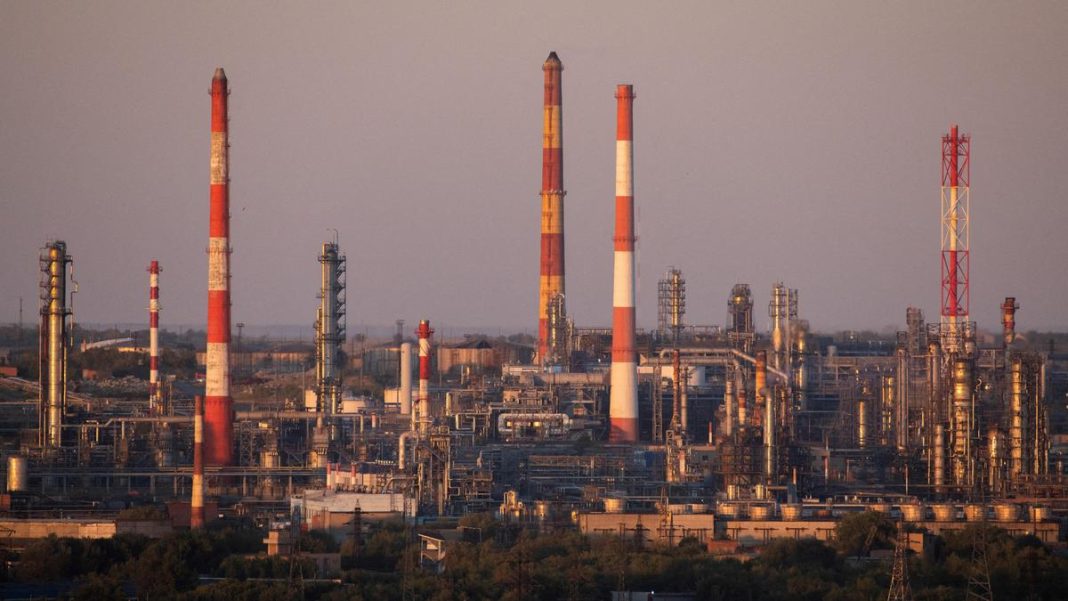U.S. Sanctions Russian Oil Giants, India Poised to Cut Imports
The United States has imposed sanctions on Russia’s two largest oil companies, Rosneft and Lukoil, causing global oil prices to jump 3%. The move aims to cut off funding for Moscow’s war in Ukraine and has prompted major buyer India to prepare for sharp reductions in Russian crude imports.
Key Takeaways
- U.S. sanctions target Rosneft and Lukoil, accounting for over 5% of global oil output.
- Indian refiners, including Reliance Industries, plan significant cuts to Russian oil purchases.
- Companies have until November 21 to wind down transactions with sanctioned entities.
- The sanctions come amid strained India-U.S. trade relations and ongoing Ukraine conflict.
Sanctions Target Kremlin’s War Funding
U.S. Treasury Secretary Scott Bessent stated the sanctions directly target “Russia’s two largest oil companies that fund the Kremlin’s war machine.” Oil and gas revenues contribute approximately a quarter of Russia’s federal budget, making them crucial for financing the ongoing conflict.
“Given President Putin’s refusal to end this senseless war, Treasury is sanctioning Russia’s two largest oil companies that fund the Kremlin’s war machine,” – U.S. Treasury Secretary Scott Bessent
India’s Response and Refiner Actions
President Trump claimed India has agreed to reduce Russian oil imports to “almost nothing” by year-end, following discussions with Prime Minister Narendra Modi. Indian refiners are already taking action:
Reliance Industries, the world’s largest refining complex operator and top Indian buyer of Russian crude, plans to reduce or cease imports, including halting purchases under its long-term Rosneft deal for nearly 500,000 barrels per day.
A Reliance spokesman confirmed: “Recalibration of Russian oil imports is ongoing and Reliance will be fully aligned to GOI [Government of India] guidelines.”
State-owned refiners including Indian Oil Corporation, Bharat Petroleum, and Hindustan Petroleum are reviewing trade documents to ensure compliance, though most purchases come through intermediaries.
One refinery source predicted: “There will be a massive cut. We don’t anticipate it will go to zero immediately as there will be some barrels coming into the market via intermediaries.”
Broader Geopolitical Context
The sanctions follow heightened trade tensions between India and the U.S., after Washington doubled tariffs on Indian goods to 50%, including a 25% punitive duty on Russian crude purchases. India termed these measures “unfair, unjustified and unreasonable” but is negotiating a trade deal that could reduce tariffs in exchange for cutting Russian oil imports.
Meanwhile, Ukraine’s President Zelenskyy welcomed the sanctions as “very important” but called for more pressure to secure a ceasefire. The European Union is considering using frozen Russian assets for a 140 billion euro loan to Kyiv, as conflict continues with recent drone attacks on the Ukrainian capital.
Russia downplayed the sanctions’ impact, with Foreign Ministry spokeswoman Maria Zakharova stating Moscow has developed “strong immunity” to such restrictions, noting that taxation of output rather than exports may soften the immediate financial blow.




